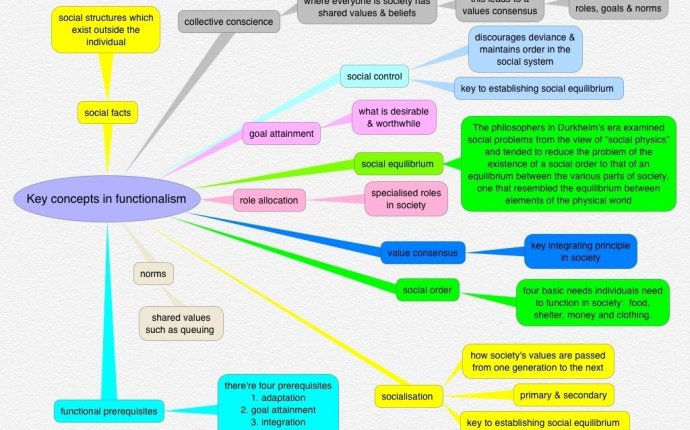
what is functionalism in sociology definition
It can be well understood through organic analogy. There is similarity between the organism and the society they both follow the same rule.
Grow from simple to complex
Homogenous to heterogenous
Despite the complexity interdependency of each organs
If one organ is non-functional it will affect the function of all
According to functionalism, society is a system of interconnected parts that work together in harmony to maintain a state of balance and social equilibrium for the whole. It is an approach to understand, society is made various units smalls unit can be considered as family. For example- all social institutions, organizations, professional organizations, units may be understood through this approach. The beauty of this perspective is it looks at society in its totality. It is completely based on integrity of the different organs of the society.
Examples- we can understand the Road Transport organization which is also interlinked with Educational Institutes, Financial Institutes, Electricity, Civil Aviation, Police etc. if there is strike or any sort of disruption the employees of all departments will be equally affected and may paralyze the function.
Again, it is an angle/ dimension/ way/perspective to look and understand any social unit, and to know how society functions in day-to-day life.
The functionalist perspective efforts to illustrate social institutions as a collective means to meet individual as well as social needs. It is also known as structural-functionalism because it often focuses on the ways social structures (e.g., social institutions) meet social needs. Its seeds can be found even in the famous work of August Comte (Consensus Universal) but it was unclear and quite a vague. Later, Spencer, Durkheim, Parsons Merton, etc. contributed to make it for well established.









